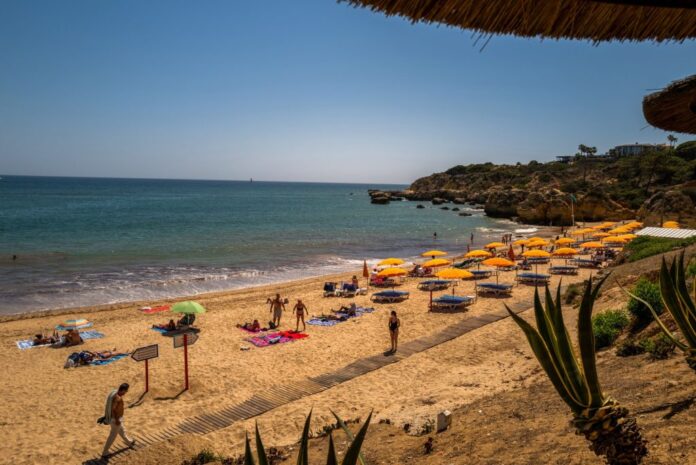Wealthy South Africans looking to future-proof themselves against a volatile economy, weak currency, and a lack of global mobility are opting for several residency or citizenship-by-investment programmes in Europe, says Andrew Rissik, MD for forex and investment migration at Sable International.
“We’ve looked at dozens of programmes, but ultimately settled on three – all in Europe – that meet the needs of those looking for a second residency or citizenship,” says Rissik, who adds that the company has been swamped with enquiries in the last 12 months from South Africans looking to emigrate.
What are residency and citizenship-by-investment programmes?
Residency-by-investment (RBI) and citizenship-by-investment (CBI) are terms for programmes offered by governments around the world that allow someone to invest in a country’s economy in exchange for temporary or permanent residency or citizenship. Each country has different requirements and different investment options.
Apart from offering tax benefits, global mobility and financial protection (with offshore banking and the ability to diversify your portfolio), all three programmes offered by Sable require limited physical presence in the country and a return on investment.
Ireland’s Immigrant Investor Programme
Ireland has become an attractive destination to many multinational companies, who have chosen it as the home for their European headquarters.
“This is because Ireland has one of the fastest growing economies in the European Union [EU] and maintains a high position on the list of Europe’s top destinations for foreign investment.
“Ireland has a high standard of living and ranks high in earnings, education, security, and health,” says Rissik.
Ireland’s Immigrant Investor Programme, also known as Ireland’s investor visa, is a residency-by-investment programme and not a citizenship-by-investment programme. However, this programme remains appealing for two reasons: its low residency requirements and the business expansion opportunities.
Investors are granted a Stamp 4 visa (Irish permanent residency) which grants them full residency and working rights, and the ability to start a business in Ireland. If you are not yet ready to relocate to Ireland, you can retain this Stamp 4 visa with just one day a year spent in the country. Ireland’s investor visa also includes dependent children up to the age of 24, provided they are financially dependent on you and in full-time education.
To qualify for the Immigrant Investor Programme, you can make a donation of €500 000 (R8.5 million) or make an investment starting at €1 million (R17 million). Ireland’s residency-by-investment can be turned into full Irish citizenship if you relocate to Ireland.
The Irish passport is now the only one that offers holders the ability to live and work in both the EU and, through a common travel agreement, the UK.
“So, you can either stay in South Africa and enjoy the life you’ve built here with a good backup plan should you want to immigrate later, or you can start your move to Ireland now and apply for full citizenship in 2027,” adds Rissik. “One of the things we like about this programme is that the fees are very low, unlike some other programmes which include large contributions to government.
“One of the real benefits of the Irish programme is that if you have children in the final years of schooling, you all get permanent residency right away, and you only need one day a year in Ireland thereafter. The kids can then go to university in Ireland and that time contributes towards time required for citizenship.”
Portugal’s Golden Visa programme
Portugal tops many impressive lists such as being the fourth best place to retire, fifth on Unicef’s 2019 list of family-friendly countries, and fourth on the Institute for Economics & Peace’s 2021 Global Peace Index. This is coupled with a high standard and low cost of living, its breathtaking views of golden beaches and the beautiful landscape. While Portuguese winters can be reminiscent of a Cape winter, the country has a long summer, with a climate not dissimilar to SA.
The Golden Visa, Portugal’s residency-by-investment programme, allows holders to live and work in Portugal and travel for 90 days visa-free throughout the European Schengen Area. After holding the Golden Visa for five years, you may be eligible for Portuguese permanent residency and citizenship.
As a Portuguese national, you can apply for a Portuguese passport – one of the strongest passports in the world.
Citizenship can be applied for in tandem with permanent residency. The Golden Visa’s physical presence requirement is only 35 days over the entirety of the five years. Portugal also has a range of tax benefits. Those who spend more than 183 days in Portugal can register for a Non-Habitual Residence tax programme, which makes them exempt from almost all foreign source income tax. There is also no wealth or gift tax.
The Golden Visa investment options start at €280 000 (R4.8 million) for a property rehabilitation project in a low density area within Portugal. “We have years of experience in the Portuguese property market and our investment migration specialists will guide you in your investment decision to ensure you find something suitable for your individual needs. We are completely independent from the large real estate houses and will only promote areas and developments where we feel there is the potential for growth and the opportunity for a return on investment. Other investment options are available at €350 000, €400 000 and €500 000 (R6 million to R8.5 million),” adds Rissik.
Malta’s citizenship-by-investment programme
Malta’s citizenship-by-investment programme, also known as the Exceptional Services by Direct Investment (ESDI) programme, allows applicants to apply for Maltese citizenship after 12 or 36 months of Maltese residency. Malta is a beautiful island in the Mediterranean with one of the most stable economies in Europe. It offers dual citizenship and Maltese nationality can be passed on to future generations through descent. The Maltese passport is currently ranked as the seventh strongest passport in the world and allows visa-free travel to 185 destinations. Malta also sits comfortably as the eighth best place to retire.
Maltese residency can be processed and approved in as little as 60 days and your Maltese citizenship application will be approved in 36 to 40 months depending on which timeline you choose. This programme requires a large non-refundable government contribution which starts at €600 000 (R10.2 million) for the main applicant based on an application for citizenship after 36 months. This is increased to €750 000 (R12.8 million) should the main applicant opt to apply for citizenship on the expedited 12-month timeline.
In addition to your government contribution and residence requirement, the other ESDI requirements include:
- A property lease or real estate investment
- A once-off charitable donation.
About Sable International
Sable International is an expert in helping businesses and private individuals with international interests, offering full-service solutions through its citizenship, residency, wealth, tax and forex divisions. It specialises in cross-border financial and immigration advice and solutions. If you’re ready to embark on your journey to global citizenship, it’s there to help.
Brought to you by Sable International.
Moneyweb does not endorse any product or service being advertised in sponsored articles on our platform.










